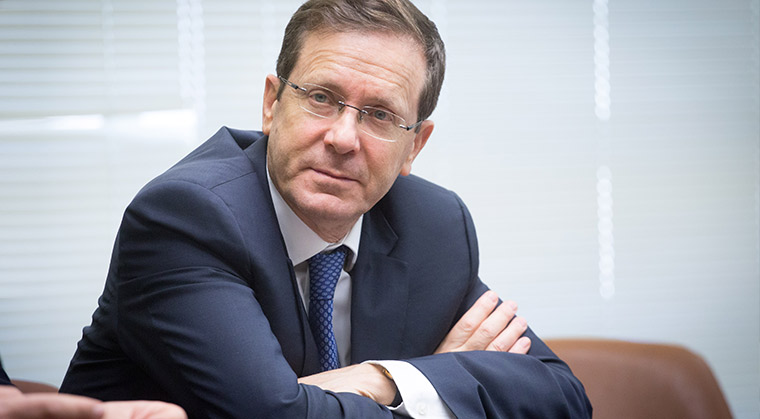Yitzchak Herzog, Israel-Diaspora Diplomat


Photos: Flash90
Y
itzchak Herzog’s appointment as chairman of the Jewish Agency this week was both surprising and curious.
Surprising, because the last time the post was filled by someone who lacked the support of the prime minister was in 1995. Moreover, the Jewish Agency’s top job customarily goes to a Likudnik, whereas Labor gets the Keren Kayemet L’Yisrael (Jewish National Fund). Now, both institutions are being led by the scorned, browbeaten Labor Party.
For Netanyahu, a serial procrastinator, it’s an especially painful loss, since he allowed the coveted position to slip through his fingers. Bibi has no one to blame but himself: He initially refused to support Yuval Steinitz, the Likud minister who pondered taking the position. By the time Netanyahu had reconsidered, it was already too late, a scenario reminiscent of how he dealt with the presidency four years ago.
Further, the appointment of Herzog is seen as a strike by liberal Diaspora Jews against the Israeli prime minister. Readers will recall the open public rift surrounding prayer access at the Kosel, as well as the many debates that have emerged around the issue of conversion. The reluctance of the Jewish Agency board to listen to Netanyahu’s last-minute request to choose Steinitz may be a bit of payback. At the same time, it’s reasonable to suggest that Netanyahu’s lack of attention to the position may indicate that he’s largely thrown in his lot with his Republican supporters in the United States.
Herzog, for his part, has been tasked with a mission impossible — to try to unite all the various streams in the Jewish world, who have completely opposing agendas. On his first day on the job, Herzog was optimistic that his demonstrated skill at reaching compromise would bring peace between different parts of the nation, but when I asked him how he intended to solve the conversion issue, he was ambiguous. In a phone conversation just hours after his appointment, he told Mishpacha: “I believe the spiritual leadership must meet and determine how to protect Jewish continuity in every form and in all places, and how to integrate Israel as a central factor among Diaspora Jewry, and how to integrate Diaspora Jewry in Israel.”
As for the aforementioned position of Israel’s president, it’s interesting that Herzog’s name has been mentioned many times as a potential contender for 2021. That’s an important piece of the puzzle, since it’s members of the Knesset who elect the president. That means the chareidi parties will have quite a say in deciding who will be the tenth president of Israel. It’s not a stretch to say that even though the Reform and Conservative communities worked enthusiastically for his appointment, Herzog might still have to curry favor with the chareidim — or at least be very careful not to provoke them.
Herzog seems to recognize that reality. At the start of our conversation, he immediately indicated that he was familiar with Mishpacha magazine and reminded this reporter that he is the grandson of Rabbi Yitzchak Eizik HaLevi Herzog, the first Ashkenazic chief rabbi of Israel, and a son of President Chaim Herzog.
“I’m also a graduate of [the Modern Orthodox] Yeshivat Ramaz in New York, headed by Rabbi Haskel Lookstein, and in 1976, I went with my father on Succot to visit the Lubavitcher Rebbe,” Herzog explained. “I cross all sectors.”
Which issues would you like to advance as Jewish Agency head?
“I see the position as a bridge. Rebbe Nachman of Breslov says, ‘The world is a very narrow bridge.’ There’s a very narrow bridge between Diaspora Jewry and between Israel, and it must be strong and safe. The Jewish Agency served in the past as the bridge for building the state, for absorbing millions of olim, and today, it must serve as the bridge between the various streams of Diaspora Jews and the State of Israel.”
But you were appointed against the will of the prime minister, with the relish of the Reform and Conservative communities. Will that affect how you operate?
“I received the warm blessings of all groups within Orthodox Jewry, as well as from across the political spectrum, from [the Jewish Home’s] Naftali Bennett to [Meretz’s] Tamar Zandberg. I also extended my hand to the prime minister, in the hope that we’ll work together. We have a nation and a state. We’ll know how to cooperate.”
But how will you find a common denominator on all-or-nothing issues, such as conversion or the Kosel?
“It’s always possible to reach a compromise. I was the one to initiate the historic arrangement for an alternative prayer area near the Kosel to prevent strife among Am Yisrael, and I received the support of the leading Orthodox rabbanim in Israel. That’s the basis of the idea to enlarge the alternative prayer area. I expect the leaders to work together in order to bring peace among Am Yisrael. I believe in quiet, not noisy, dialogue. I believe in full partnership with the Jewish federations because they safeguard the infrastructures of the Jewish institutions.”
(Originally featured in Mishpacha, Issue 716)
Oops! We could not locate your form.













